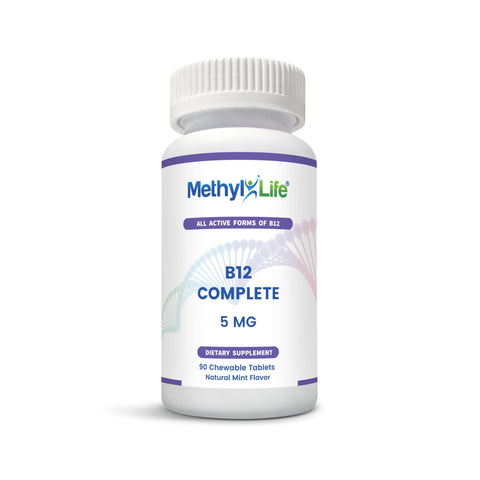How Much Vitamin B12 Should You Take Daily?
Vitamin B12 is a highly complex nutrient with numerous roles in the body. The recommended daily intake1(RDI) of B12 for non-pregnant adults over 14 is 2.4 micrograms (mcg). Those who are pregnant need 2.6 mcg daily, while those who are breastfeeding need 2.8 mcg/day.
B12 is required for red blood cell production, energy production, DNA synthesis, and the normal function of the brain and nervous system. However, daily requirements vary according to age, nutritional status, diet, lifestyle, genetics, and concurrent health conditions.
Deficiency in B122 may lead to various health conditions, including anemia, fatigue, depression, and elevated homocysteine. Vitamin B12 is lower in patients with Parkinson’s disease3, which has been associated with peripheral neuropathy, cognitive impairment, and faster disease progression.
If your diet is not providing adequate B12 or your body cannot absorb it correctly, a B12 supplement may be the best way to support your body’s needs.
This article will discuss the recommended dosages of B12 for adults according to their age, during pregnancy or breastfeeding, and whether they are vegan or vegetarian.












